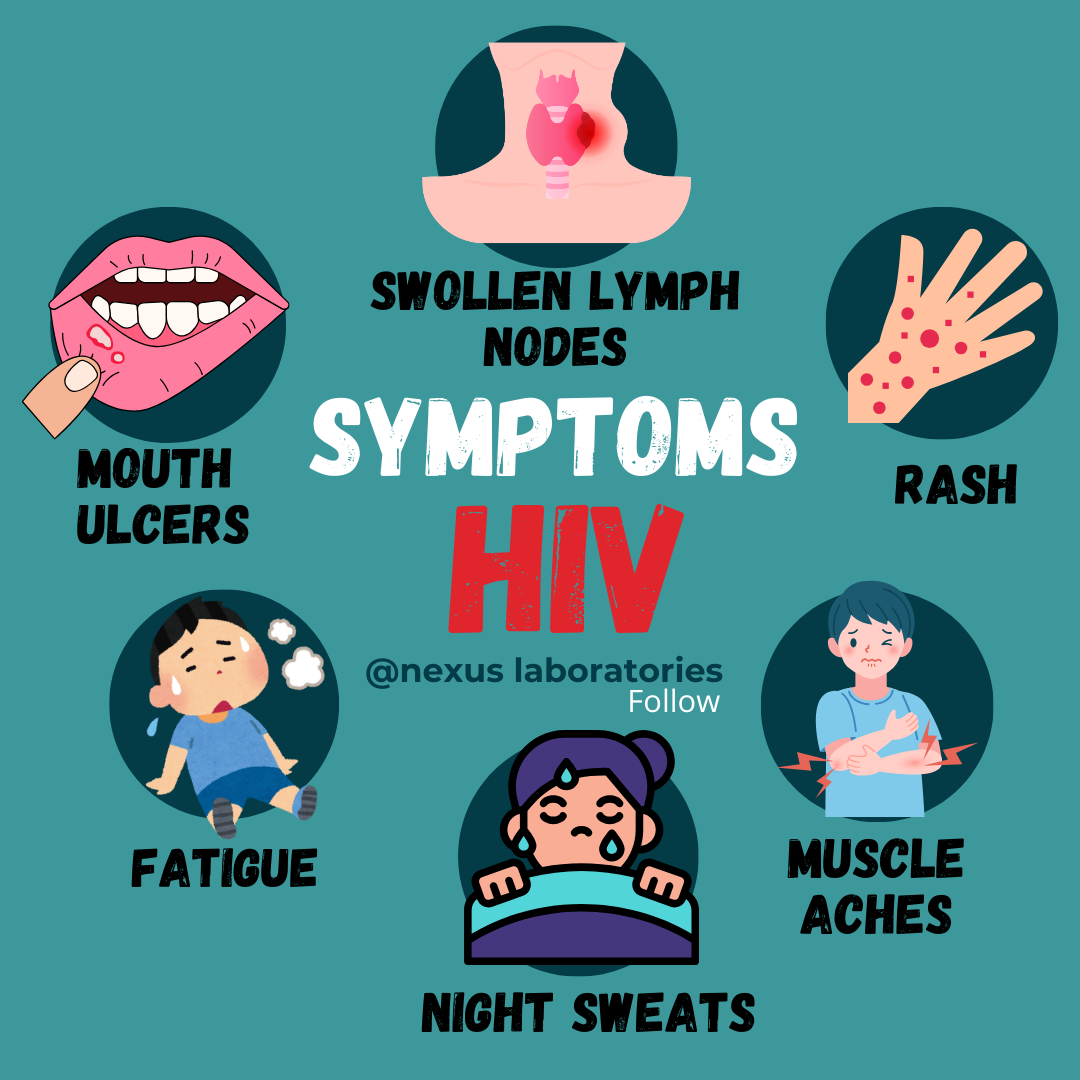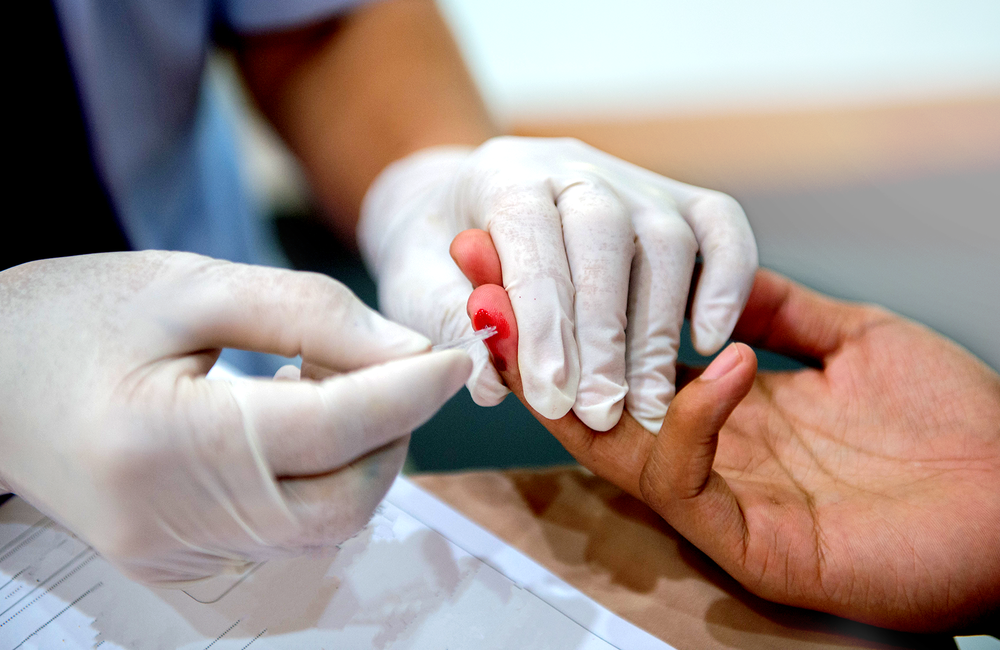What is HIV?

HIV (Human Immunodeficiency Virus) is a virus that attacks the body’s immune system, specifically the CD4 cells (T cells), which are crucial for fighting infections. If left untreated, HIV can lead to the disease AIDS (Acquired Immunodeficiency Syndrome).
How HIV is Transmitted
HIV is primarily transmitted through contact with specific body fluids from an individual who has the virus. These fluids include blood, semen (cum) and pre-seminal fluid (pre-cum), rectal fluids, vaginal fluids, and breast milk.
The most common ways HIV is transmitted include:
- Unprotected sexual contact with an infected person
- Sharing needles or syringes
- From mother to child during childbirth or breastfeeding
How can I lower my risk for HIV?
Using condoms and PrEP correctly and consistently protects you from HIV transmission during sex. You can prevent HIV infection by practicing safer sex, taking PrEP, and not sharing needles or other equipment if you use drugs.
I'm concerned that I might have been exposed to HIV. What can I do?
If you are concerned that you have been exposed to HIV, you should consider taking PEP and getting tested. PEP must be taken within 72 hours of possible exposure to prevent HIV from establishing in your body. Refrain from sex until you receive a negative test result.
My partner is HIV positive. Can I get HIV?
If your partner is HIV positive, consider long-term PrEP use and consistently and correctly use condoms during sex. A person with sustained undetectable levels of HIV in their blood cannot transmit HIV to their sexual partners.
Do I have to inform my partner about HIV?
Although discussing your HIV status may be uncomfortable, it is important to disclose it to your sex partner(s) or anyone with whom you are sharing needles. In Malta, intentionally putting another person at risk of HIV transmission can lead to criminal penalties.
What are the symptoms of HIV?
HIV infection can be asymptomatic initially; therefore, the only way to know for sure is to get tested. Early diagnosis prevents further harm to the body and reduces the risk of transmission.
Can HIV be cured?
HIV cannot be cured, but it can be managed with antiretroviral drugs. These drugs slow the virus's spread in the body but do not eliminate it. When a person with HIV is on effective treatment, it lowers the viral load in their blood. When the viral load is low (below 200 copies/ml), it is considered undetectable or virally suppressed, and HIV cannot be transmitted sexually.
What is the treatment for HIV?
Typically, a combination of drugs is used to target the virus. Treatment is tailored to the individual and is usually lifelong.

Symptoms of HIV
The symptoms of HIV can vary widely. Some individuals may experience flu-like symptoms 2 to 4 weeks after infection, which can include fever, chills, rash, night sweats, muscle aches, sore throat, fatigue, swollen lymph nodes, and mouth ulcers.
| HIV Stage |
What are the stages of HIV?
HIV (Human Immunodeficiency Virus) infection progresses through several stages, typically divided into three main phases:
Stage 1 :
Acute HIV Infection (Primary HIV Infection):
known as Acute HIV Infection or Primary HIV Infection, occurs within 2 to 4 weeks after initial exposure to the virus. During this phase, symptoms can resemble flu or mononucleosis, including fever, fatigue, sore throat, swollen lymph nodes, rash, muscle and joint aches, and headache. HIV replicates rapidly, leading to very high viral load in the blood. Concurrently, the immune system starts to respond by producing HIV antibodies.
Stage 2 :
Clinical Latency Stage (Chronic HIV):
Also known as chronic HIV infection or asymptomatic HIV infection, this stage occurs after the acute phase. During this time, the virus continues to replicate at low levels, but symptoms may be absent or mild. This stage can last for a few years to several decades if the person is not receiving antiretroviral therapy (ART). Without ART, HIV progressively weakens the immune system, eventually leading to opportunistic infections or certain cancers.
Stage 3 :
AIDS (Acquired Immunodeficiency Syndrome):
AIDS is the final stage of HIV infection, characterized by severe damage to the immune system. It is defined by a low CD4 cell count (below 200 cells/mm³) or the presence of specific opportunistic infections or cancers. Without treatment, individuals typically develop AIDS within 10 years of HIV infection, although this timeline can vary. AIDS-defining conditions include opportunistic infections such as tuberculosis, pneumonia, and candidiasis, as well as certain cancers like Kaposi's sarcoma and lymphoma.
It's important to note that with early diagnosis and prompt initiation of antiretroviral therapy (ART), many people with HIV can live long, healthy lives and prevent progression to AIDS. Regular medical care and adherence to treatment are crucial to managing HIV infection effectively.
| HIV History |
HIV, which stands for Human Immunodeficiency Virus, was first identified in the early 1980s. Scientists believe that the virus originated from non-human primates in Central and West Africa and was transferred to humans through contact with their blood or bodily fluids.
The virus attacks the immune system, specifically the CD4 cells (T cells), which are crucial for fighting infections. Over time, HIV can destroy so many of these cells that the body becomes unable to fight off infections and diseases. This stage of infection is known as AIDS (Acquired Immunodeficiency Syndrome).
In the early years of the HIV epidemic, there was a lot of fear and misunderstanding about how the virus spread. This led to stigma against people living with HIV/AIDS and hindered efforts to control the epidemic.
However, scientific research advanced rapidly, leading to the development of antiretroviral drugs in the mid-1990s. These drugs help to suppress the virus and allow people with HIV to live longer, healthier lives. The introduction of antiretroviral therapy (ART) has transformed HIV/AIDS from a fatal illness to a chronic, manageable condition for many people.
Global efforts have been made to prevent new HIV infections through education, promoting safe sex practices, and providing access to testing and treatment. Despite these efforts, HIV/AIDS remains a significant global health issue, particularly affecting regions with limited healthcare resources.
Continued research and public health initiatives are essential in the ongoing fight against HIV/AIDS, aiming for better treatments, prevention strategies, and ultimately, a cure.
THESE SYMPTOMS ARE OFTEN CALLED ACUTE RETROVIRAL SYNDROME (ARS) OR PRIMARY HIV INFECTION. HOWEVER, SOME PEOPLE MAY NOT SHOW ANY SYMPTOMS FOR YEARS.
The Importance of HIV Testing
Knowing your HIV status helps you make informed decisions about your health. Early detection through testing can lead to better management of the virus and prevent its transmission to others. Regular testing is especially important for individuals who are at higher risk of infection.
Living with HIV
With proper medical care, HIV can be controlled. When the virus is suppressed to undetectable levels in the blood through antiretroviral therapy (ART), it helps the immune system stay healthy and prevents the progression to AIDS. People living with HIV who achieve and maintain an undetectable viral load cannot transmit the virus to others.
Stigma and Support
HIV can still carry a stigma, but it’s important to remember that it’s a medical condition like any other. Support from healthcare providers, friends, and family is crucial for those living with HIV. Many organizations and communities provide resources and support for people affected by HIV.
How to Protect Yourself
To protect yourself from HIV, use condoms consistently and correctly during sex, get tested regularly for HIV and other sexually transmitted infections (STIs), limit the number of sexual partners, never share needles or syringes, and consider pre-exposure prophylaxis (PrEP) if you are at high risk for HIV.
| What is AIDS |
AIDS stands for Acquired Immunodeficiency Syndrome. It is a condition caused by infection with the Human Immunodeficiency Virus (HIV). AIDS is the most severe phase of HIV infection, characterized by a severely damaged immune system.

Understanding AIDS: Advanced HIV Infection, Diagnosis, Treatment, and Prevention
AIDS represents the most advanced stage of HIV infection and is characterized by severe damage to the immune system. HIV specifically targets CD4 cells (T cells), which are crucial for fighting infections. As HIV progresses, the number of these cells decreases, weakening the immune system and making the body more susceptible to opportunistic infections—illnesses caused by pathogens that usually do not affect those with healthy immune systems. Symptoms of AIDS can include rapid weight loss, recurring fever, extreme fatigue, prolonged lymph node swelling, and persistent diarrhea, along with various opportunistic infections and certain cancers as the immune system deteriorates.
Diagnosis of AIDS is based on criteria from the Centers for Disease Control and Prevention (CDC), which typically includes a confirmed HIV infection and either a CD4 cell count below a certain level or the presence of specific opportunistic infections or cancers. Although there is no cure for AIDS, it can be managed with antiretroviral therapy (ART), which involves taking a combination of HIV medicines daily to suppress the virus, help the immune system recover, and prevent further progression. Early initiation of ART is crucial for improving health outcomes.
Preventing AIDS involves preventing HIV infection through strategies such as practicing safe sex with condoms, not sharing needles, and using pre-exposure prophylaxis (PrEP) for high-risk individuals. Regular HIV testing and prompt treatment if HIV-positive are also important. Advances in HIV treatment and prevention have significantly improved the prognosis for people living with HIV/AIDS, though continued efforts are necessary for better global outcomes.
| Home Self Care |
HIV is a serious virus, but with proper management, it can be effectively controlled. Regular testing, safe practices, and supportive care are essential for living a healthy life with HIV. At Nexus Laboratories, we offer reliable and accurate HIV test kits for home use. It is recommended to purchase two test kits because the 90-day "window period" is required for accurate results. During this period, it takes time for detectable HIV antibodies to develop. To ensure accuracy, conduct your initial test and then repeat it after 90 days. Our test kits provide rapid results within 5 minutes, are convenient for home use, and offer reliable results. For those who prefer lab testing, the same 90-day window period applies to ensure precise results. You can purchase your test kits directly from our official website.

Jul 19,2024

